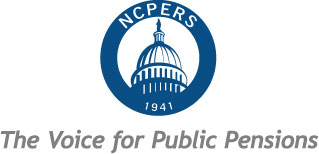WASHINGTON--(BUSINESS WIRE)--Public pension expenditures do not crowd out education funding, according to new research from the National Conference on Public Employee Retirement Systems (NCPERS).
The 2023 research update, “Do Pension Expenditures Impact Education Spending?” examined state-by-state historical data on pension contributions, education expenditures, revenues, and the economy. Lead researcher Michael Kahn dug into claims that pension expenditures are rising faster than education expenditures and found them flawed.
The study found that education funding grew at three times the annual rate of pension spending from 1993 to 2019. During this period, whereas growth in education funding was stable, pension spending was volatile. The volatility in pension expenditures is often due to plan sponsors contributing less than they are required or making occasional lump-sum payments.
During the past quarter century, the average pension expenditures were 3.6 percent of state and local own-source revenues (taxes and fees collected by municipalities). The same figure for education expenditures was 33.8 percent. The report concluded that even if pension costs rise faster than education expenditures, pension funding is unlikely to crowd out education funding because the ratio of the two is likely to stay about the same.
“Critics of defined benefit pension plans continue to spread false claims about pension costs negatively impacting education funding, but the data doesn’t lie. Further, pensions play an important role in attracting and retaining teaching staff. It’s vital that we protect these benefits as teacher shortages across the U.S. become increasingly dire,” said Hank Kim, executive director and counsel of NCPERS.
Recognizing the many competing priorities that state and local governments face, the study also examined whether state and local revenue systems are out of sync with the economy. The data showed that revenues lag economic growth in each state. “Governments can afford both pensions and education, but to do so, they must take determined steps to bring their revenue systems into harmony with the economy,” said Michael Kahn, director of research at NCPERS.
The study also includes a state-by-state analysis. In every state, pension contributions are not crowding out education funding, but state and local revenue systems remain out of sync with the economy. Read the full study.
About NCPERS
The National Conference on Public Employee Retirement Systems (NCPERS) is the largest trade association for public sector pension funds, representing approximately 500 funds throughout the United States and Canada. It is a unique non-profit network of public trustees, administrators, public officials, and investment professionals who collectively manage more than $4 trillion in pension assets. Founded in 1941, NCPERS is the principal trade association working to promote and protect pensions by focusing on advocacy, research and education, including online learning, for the benefit of public sector pension stakeholders.




